Michigan's most vulnerable rescued by kinship caregivers

Navelle Jenkins stepped up to single-handedly raise her seven grandchildren after both of her daughters died. The 78-year-old couldn't have predicted the financial and physical toll keeping her loved ones close would have.
That cross has been a heavy one for Jenkins to bear even with most grandchildren now gone from her century-old Detroit home. Jenkins works as a secretary at a church next door while 15-year-old grandson Shane remains under her care.
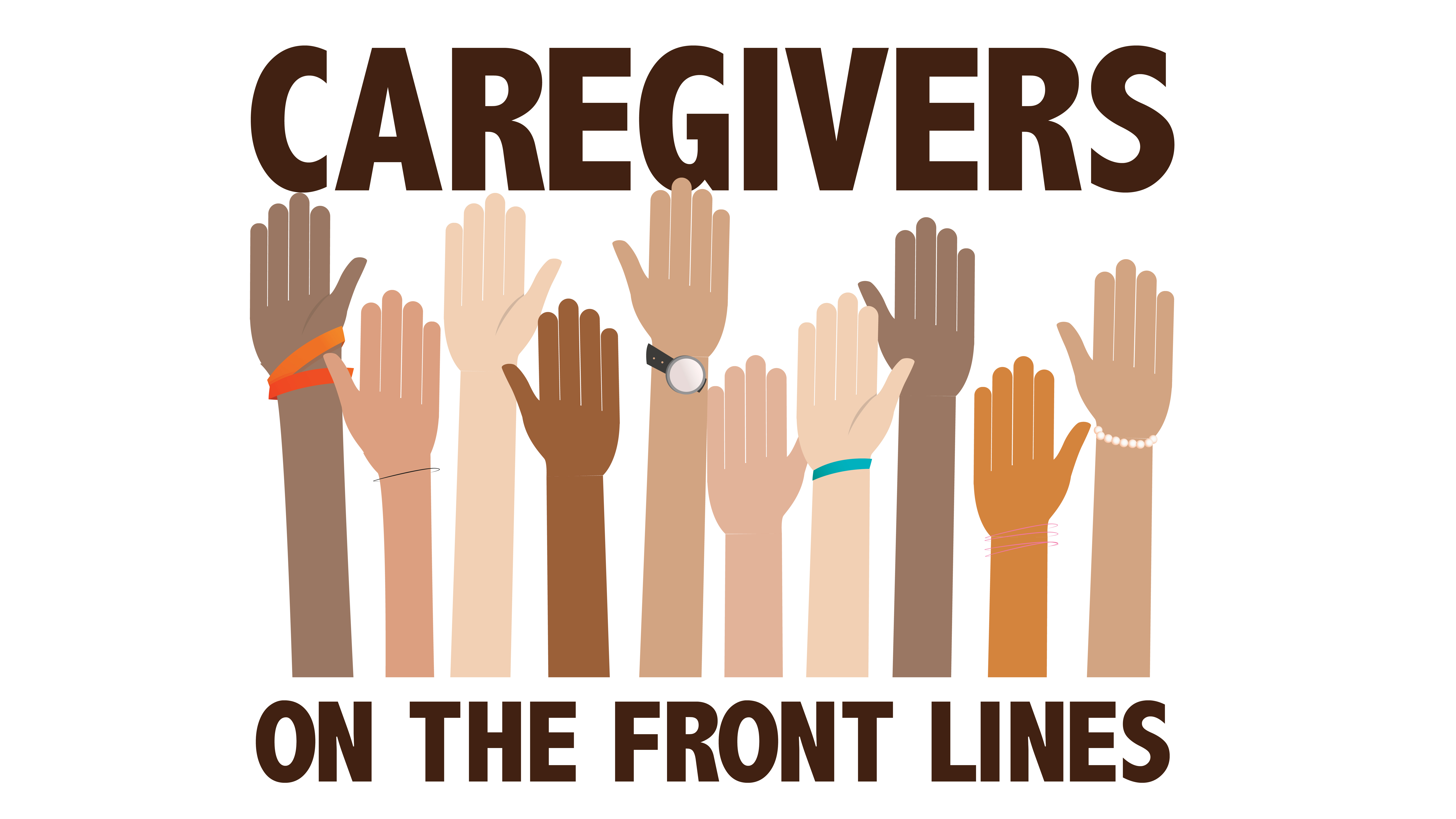
This story was produced with support from the New York & Michigan Solutions Journalism Collaborative, a partnership of news organizations and community partners dedicated to rigorous and compelling reporting about successful responses to social problems. The group is supported by the Solutions Journalism Network. Read related stories at nymisojo.com. The collaborative also has compiled a detailed Caregiving Resource Guide with links to online information about various issues of interest to caregivers.
Jenkins wishes time would turn back to when things came easy. Food, transportation and parenting skills are not the same as when she was raising her three children, and Social Security isn’t enough to afford the teenager's growing wardrobe and stomach.
Related:
- Military veteran caregivers are like 'the best friend to the vet'
- Michigan's unpaid, overworked caregivers reaching a breaking point
"It's very hard," said Jenkins, as she prepared rice, beans and cornbread for dinner on a recent night. "(Shane) eats so much, and I was told we were not approved for a Bridge card. I never tried again because it takes a lot out of me. When you're used to being in control, taking care of yourself, traveling or even driving on the highways … it's different to comprehend when you can do none of it."
Jenkins is balancing the difficult act of a kinship caregiver, a growing group of society taking care of extended family, friends of family, and multiple generations of people they did not birth.
Kinship caregivers are often overlooked and undercounted in Michigan, especially as they are rarely defined or recognized in most state laws. The system is fraught in support. Kinship caregivers describe the heroic act as being abruptly thrown into the deep end, with no guidance or resources on how to transition during an unforeseen circumstance.
In her darkest hours, Jenkins receives little support. Wringing her hands together, she nervously fiddles as if she was holding a rosary.
"I fight myself internally and have to prepare my mind mentally for the day," she said, her voice shaking. "I've been fighting depression, and the only things that help are meditation, reading my Bible and I listen to a lot of gospel preachers on television in the mornings to get my day going."
Kinship caregivers can be taking care of multiple generations under the same roof, which is referred to as the “sandwiched generation.” And oftentimes, arrangements are informal rather than legally binding, said Beth Lindley, director of the Kinship Care Resource Center at Michigan State University. The center connects people with the services available, but caregivers oftentimes suffer alone, worried that acknowledging the situation might mean the loss of other resources.
While data on kinship caregiving is limited, a recent survey found that for caregivers in Metro Detroit taking care of those 18 and older, 83% were taking care of a relative. The survey was conducted as part of an effort sponsored by the New York & Michigan Solutions Journalism Collaborative, of which The Detroit News is a member.
But kinship caregiving is rarely surveyed, meaning equivalent data for people caring for those younger than 18 doesn't exist. As a result, it's likely that the number of kinship caregivers is undercounted. The most recent data available, Lindley says, indicates there are about 54,000 Michigan children in kinship caregiving situations, both formally and informally. That figure is likely on the low end, Lindley said.
“There may very well be thousands more that we're not aware of, but these are some of our best estimates,” she said.
Lindley also estimates that 55,000 grandparents in Michigan are kinship caregivers, not including the significant number of other family members who also give care.
Lisa Grodsky, program operations manager for Grandparents Raising Grandchildren, through the Oakland Livingston Human Service Agency based in Pontiac, said "this population seems to have been expanding to almost epidemic proportions."
"When they first come into the kinship caregiver role, they are acting out of love to rescue or keep a child within the bounds of their family ...
"But once things settle down and the reality of what had occurred isn't so shocking anymore, they realize these kids need to be enrolled in school, clothing, food costs have increased and parenting starts to kick in, but they find themselves with few or little resources as a great number of them have retired already or are looking to retire," Grodsky said. "Most have never tapped into social services, don't know where to go ... the lucky ones have found a support group through different channels."
These problems can be compounded if the children have emotional or behavioral challenges related to previous trauma experienced in their homes with their birth parents — typically from child abuse, neglect or the death of a parent. The Area Agencies on Aging note the most common reasons for kinship caregiving follow parental incarceration or substance abuse.
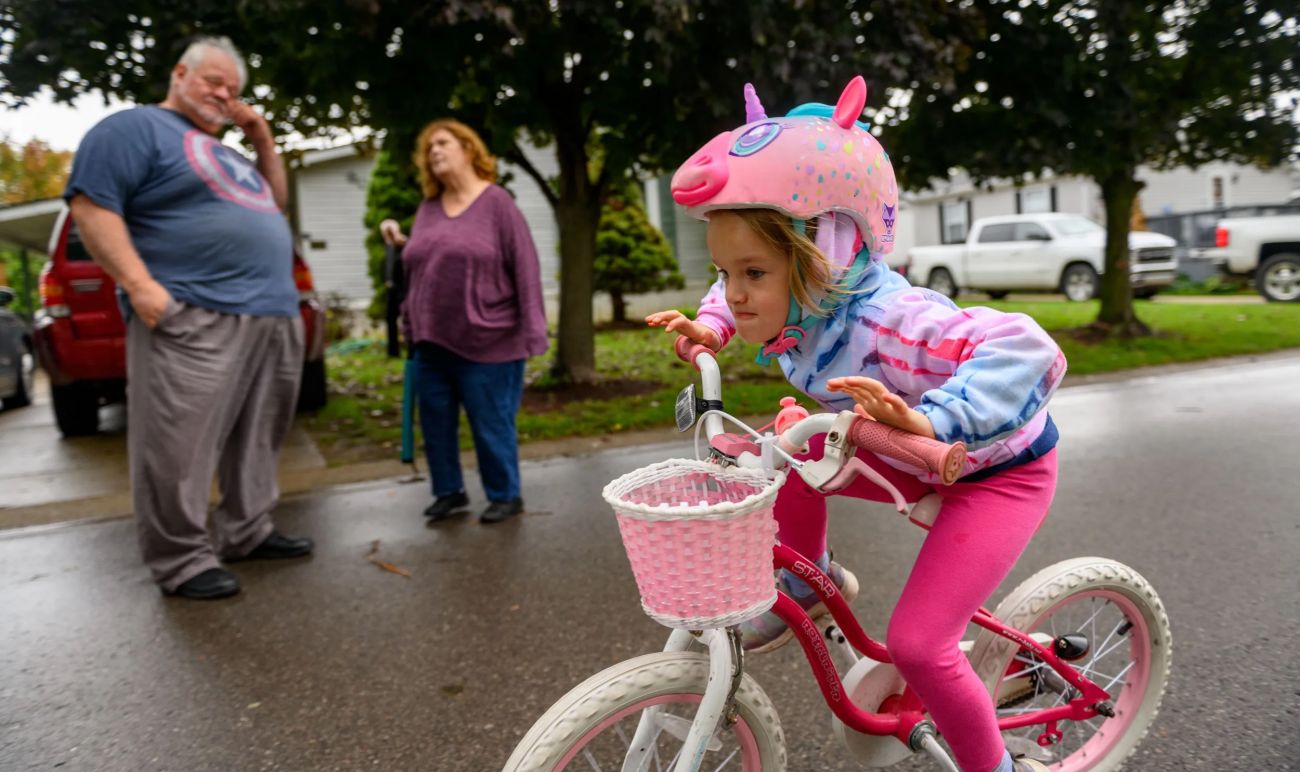
Hurdles with kin
Without obtaining legal guardianship over a person, families can’t seek financial assistance through the state. Many don’t realize their informal living situation is disqualifying them from receiving available financial assistance. Some are too disconnected or have never heard the term "kinship caregiver."
Legal challenges plague Michigan's kinship caregivers, especially grandparents, who are often not granted parental status when the child needs to enroll in schools or are hospitalized. Kinship caregivers have to hire a lawyer and petition a court for De Facto Custody to be recognized as the child's primary guardian. This also requires the child's biological parents to be absent for a set period before the guardian can petition the court.
Michigan is one of six states that does not have any established policy for recognizing de facto parents. If it did, it would allow guardians to access programs and services that might not otherwise be available. However, creating that may require an overhaul of Michigan law for Circuit and Probate Courts and legal presumptions that the courts must apply in each case. Further discussion is needed to develop legislative proposals that provide adequate options and protections, the AAA 1-B in southeast Michigan noted.
Hurdles exist surrounding transportation, as many grandparents can't drive and large families can't efficiently make multiple trips. Housing can also be an issue; many grandparents live in senior-only housing, and once inheriting children they have to seek a new space to live. The requirement of online access also prevents seniors from seeking the resources they need, including temporary financial assistance.
Agency officials have noticed caregivers are taking on the responsibility as young as 40 years old. Because of financial and legal processing hurdles, many kinship caregivers opt not to adopt those they take care of. In turn, they don’t qualify for resources like Temporary Assistance for Needy Families, which is restricted to low-income primary caregivers and has a limit of five years. Michigan received $772.8 million from TANF this fiscal year, the majority of which $528 million was appropriated to the state health department.
In an effort to reform child welfare, President Joe Biden's administration has proposed to add $20 billion over a decade to increase the number of foster children who live with relatives by reimbursing states at a higher rate of pay. The administration also proposes more funding for programs to help kinship families, and to expand a tax credit to include people who take legal guardianship of young family members, the New York Times reports.
States that receive it would be required to track the families who are caring for children outside of the system; however, critics say Biden’s budget has little chance of being entirely funded by Congress.
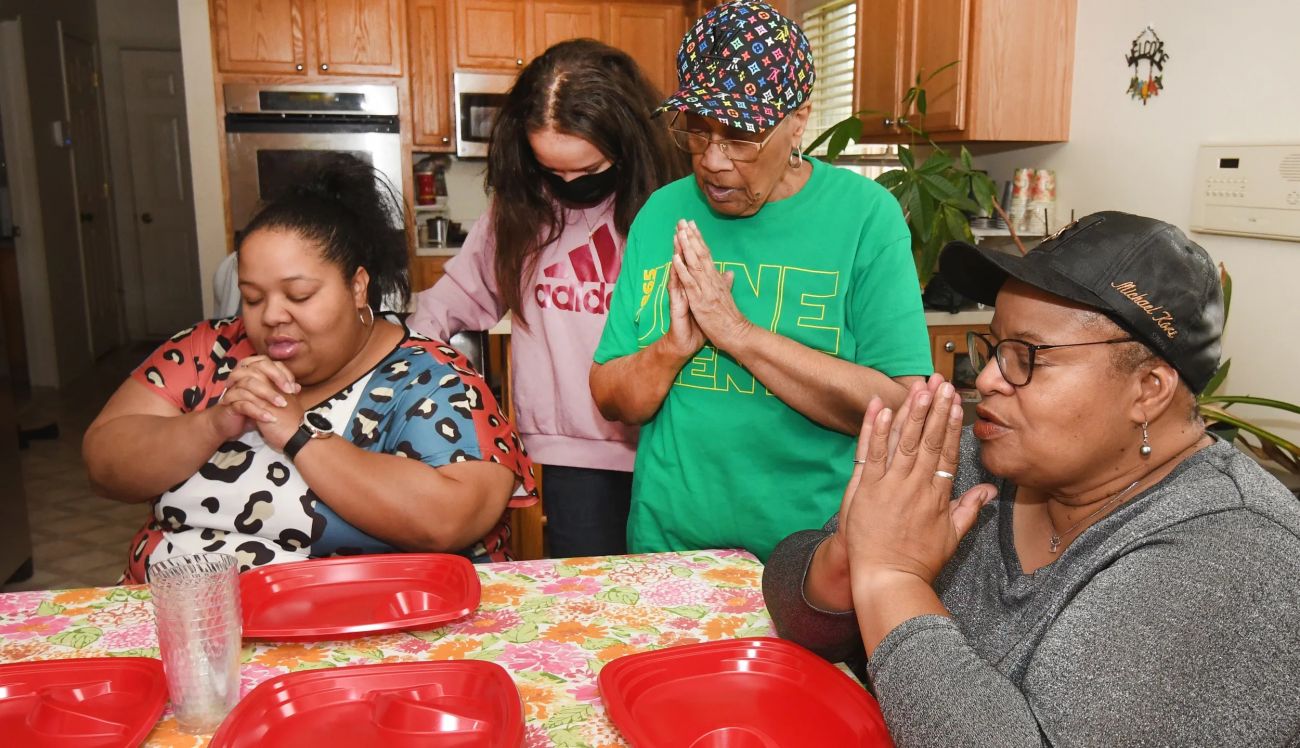
The 'sandwiched' generation
Selina Smith, 63, inherited her seven grandchildren after her son was sentenced to 17 years in prison in 2019 and her daughter died in July. Four are minors and live with her in Pontiac; she has custody over two of them.
The retired General Motors worker also cares for her 85-year-old mother, Delois McMillan, who has dementia.
"You don't have any time for yourself. You try your best to do what you can. As soon as I fall asleep, the phone rings," said Smith, who was in a severe auto accident in 1994. "Sometimes, my body shuts down on its own, and I have bad back spasms. I like to think I'm Wonder Woman, but I don't know who I am sometimes."
The blended family has tapped the Oakland Livingston Human Service Agency (OLHSA) for resources, such as food, clothing and attorney referrals. But Smith said they continue to struggle with feeding everyone and even though she's been retired for almost 30 years, she said her social security and pension label her as having too high of an income to qualify for additional benefits, even though the children receive food stamps and reduced lunch, she said.
"Taking care of all of these children is a lot. A lot just to feed them," Smith said.
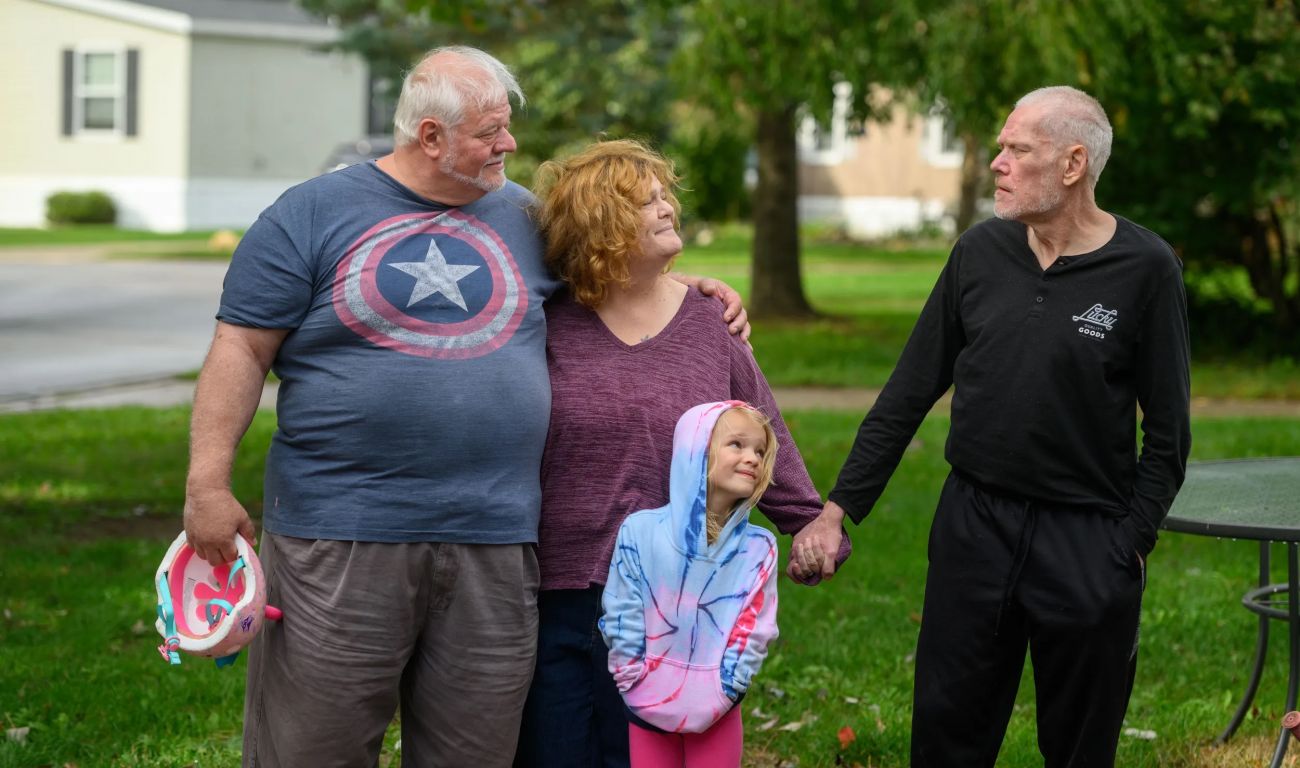
Like many kinship caregivers, Susan Firth knew she'd be caregiving more than once in her lifetime, but she never expected it to become a pitfall for her and her husband, Ken, both 63.
Firth from White Lake Township first worked as a caregiver in 1985 helping developmentally challenged people learn to be independent. She paused to take care of her parents, moving them in until they both passed by 2011. Now, she works 44 hours a week providing aid to strangers.
At home, she cares for her husband's widow's brother Grant, 63, who is autistic, and her 6-year-old granddaughter, Aurora.
Firth makes $16-$20 an hour and continues to work because "we desperately need the money" for their family of four to continue living together in a mobile home. Aurora moved in May 2019 after the family forced Firth's daughter out of the house as she struggled with drugs.
"We had hoped there would be a light at the end of the tunnel for Angela, but this is the only stable environment that (Aurora) has had since she was born," said Firth, whose plans to obtain legal custody were pushed back in the court system due to pandemic delays.
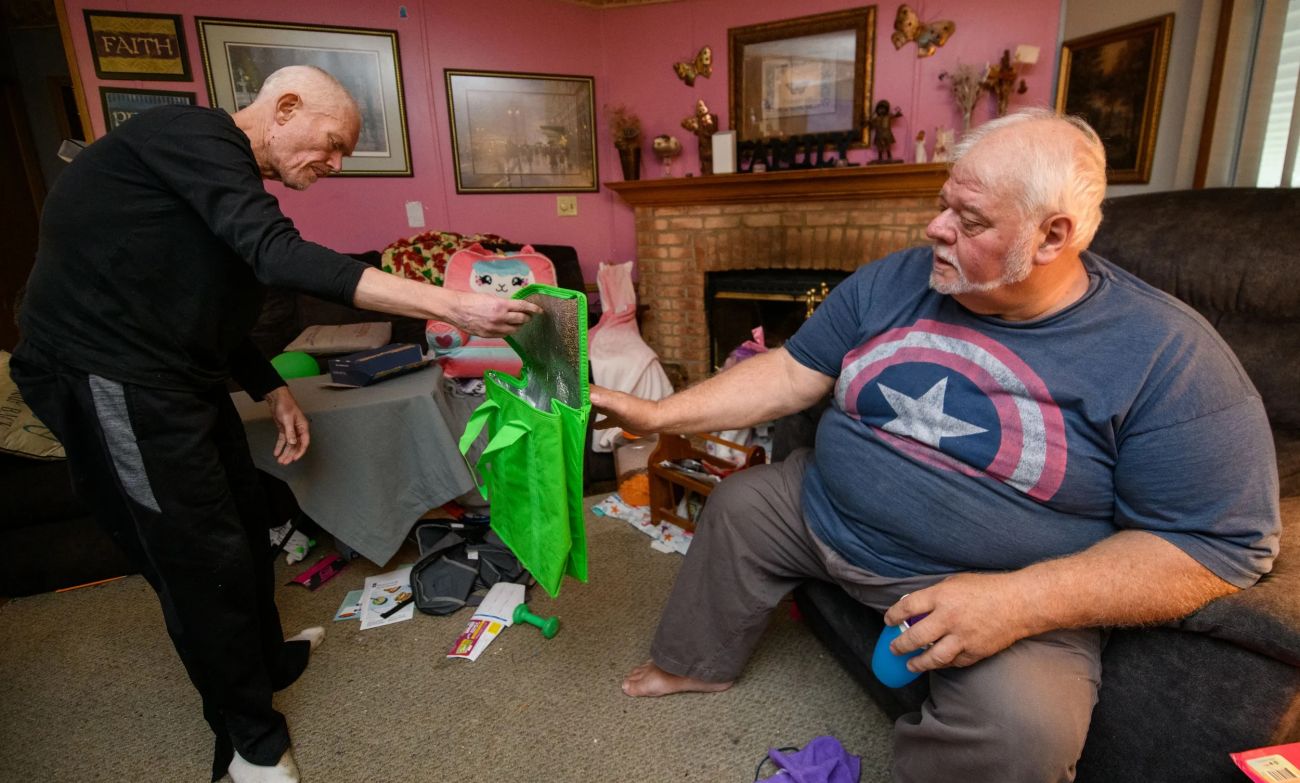
Grandparents raising grandchildren
Jenkins started caring for four of her grandchildren in 2010 after her oldest daughter died. In 2019, her fiancé and mother died. When it felt like it couldn't get worse, the pandemic hit. Jenkins' other daughter died from a heart attack in July, leaving behind her two sons with Jenkins.
"I wasn't prepared for this financially or mentally. By them staying upstairs, I was just the grandmother who could spoil them and send them back," Jenkins said. "Shane and I sometimes have problems because I'm not the same person that I was before his mom died, but we're working on it. For Christian, he turned 18 and (left). He had a difficult time because his dad died five months before his mom ... and I try to help as much as I can. I still worry.”
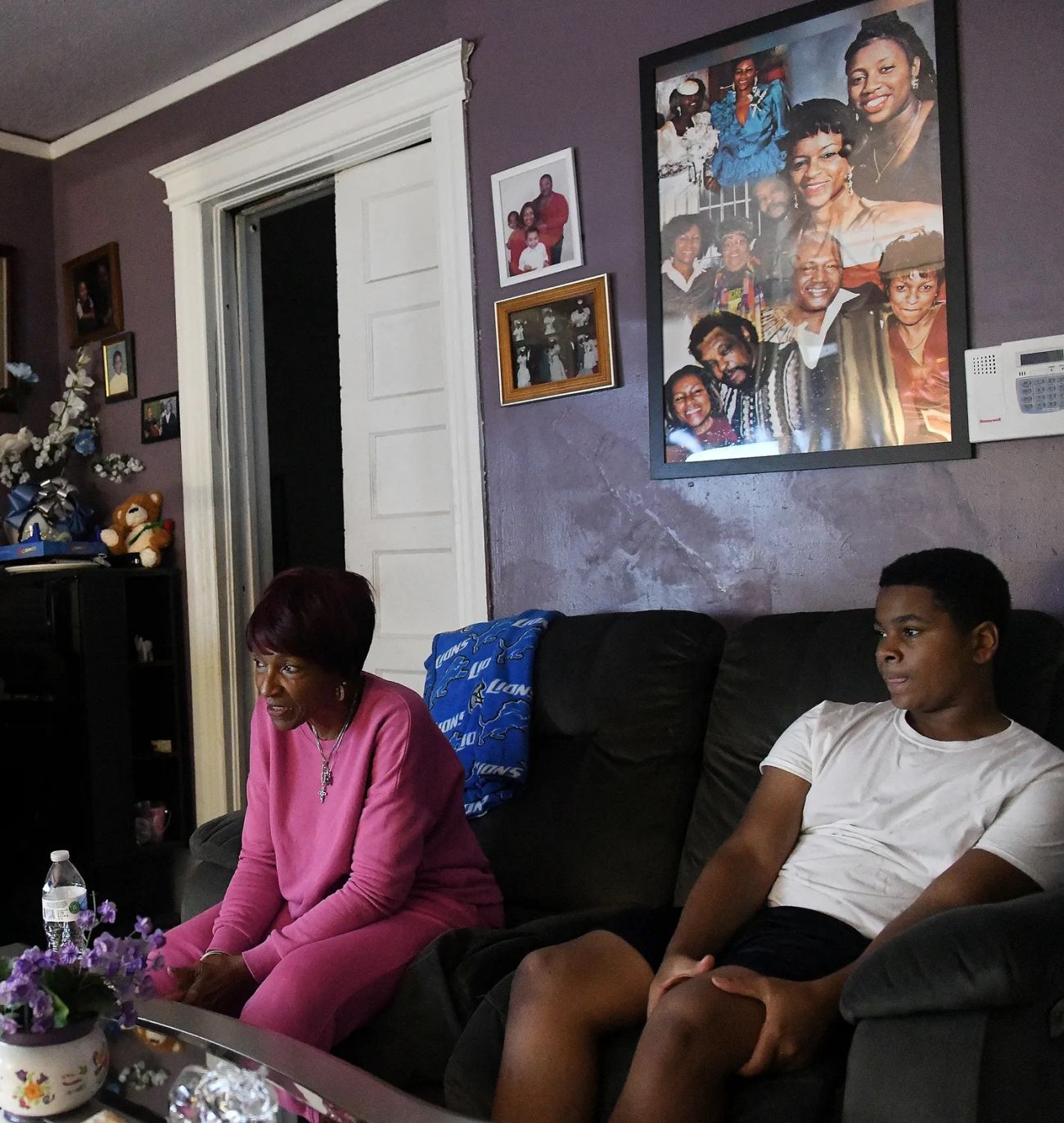
Jenkins finds new purpose by making sure Shane has a meal when he gets home from football practice. On Sundays, they have a tradition of making four-course meals.
"Before, we lived upstairs, and now, living downstairs with grandma, she's got different rules and is more strict," said Shane, who spends most of his time playing video games in his room. Shane doesn't go out or play with friends much because he said they live in a rough area off Michigan Avenue.
Jenkins said the best thing to ever happen to her was attending Grandparents Parenting Again, a monthly support group through the Detroit Area Agency on Aging. There, she met other grandparents raising children with disabilities and she questions how they do it.
"We talk just about everything. How you have to go online to speak with the teachers, so many different avenues to open this or open that," Jenkins said. "It was a woman at a grocery store who told me about Grandparents Parenting Again, and it saved my life."
GRG's Grodsky said that in 2014, it was a struggle to enroll 40 individuals who were aged 55 and older who were raising relatives. Today, she's enrolling triple that annually in Macomb, Oakland and Livingston counties.
"I just don't see this spike in other counties. We're talking about 11,000 people are raising grandchildren in the three counties that I serve. And I'm only scratching the surface because I only serve under 200 every year. So there's a whole lot more people out there without the resources that they need," Grodsky said.
GRG is only funded for people 55 and older, but Grodsky says in the past eight years, there's been an increase in younger kinship grandparents in their late 40s or early 50s that are not eligible for resources.
"Sometimes they want much more than just the support group, but at this time, that's primarily what we offer because I cannot access any funding to help with transportation costs or housing, or navigating their kinship care situation," Grodsky said. "We all want to be well informed when we're making serious decisions about raising children and deciding what to do about your situation. There is not a toll-free number or a website available at a state level to help navigate."
Lara Bouse, executive director of Fostering Forward Michigan and a founding member of Michigan Care Coalition, has been a kinship caregiver since she was 28 years old. At 54 today, she's still not old enough to receive funding passed through to the Areas Agency on Aging.
"If you don't have people that are exhausted and energetic at the same time, you can't get anything done," said Bouse, who spoke while on bedrest from diabetes complications.
Over the years, she said most don't know what to call their situation, and that's a "simple thing that needs to change."
"Our hospital systems, our courts, don't talk about it. If you end up someplace asking for help for a child, nobody says, 'Oh, you're a kinship caregiver, here's how you get some information on that,' because people don't know what exists," Bouse said. "It's a phenomenon across the country. It's always been here, and it's never going away, but we don't want to go away. It's the best possible outcome for children and elders that need help is to stay with family, and we need to make it so that it's doable."
'Making a tangible difference'
Locally, Grandparents Raising Grandchildren is piloting a project with Impact 100 Oakland County to teach grandparents how to use a computer "because raising children 12 years ago didn't require computers like it does today," Grodsky said.
Ohio, Pennsylvania and Florida were the first in the country to pilot kinship navigators, independent agencies to use as a resource to guide caregivers through systems and find benefits for which they are eligible.
In 2000, the Ohio Kinship Navigator Program was created with $3 million from the state budget and was implemented in 77 of the state’s 88 counties. Two years later, the allocation was not earmarked for the kinship navigators and all but a handful of counties continued the navigator program, said Barbara Turpin, from the Ohio program.
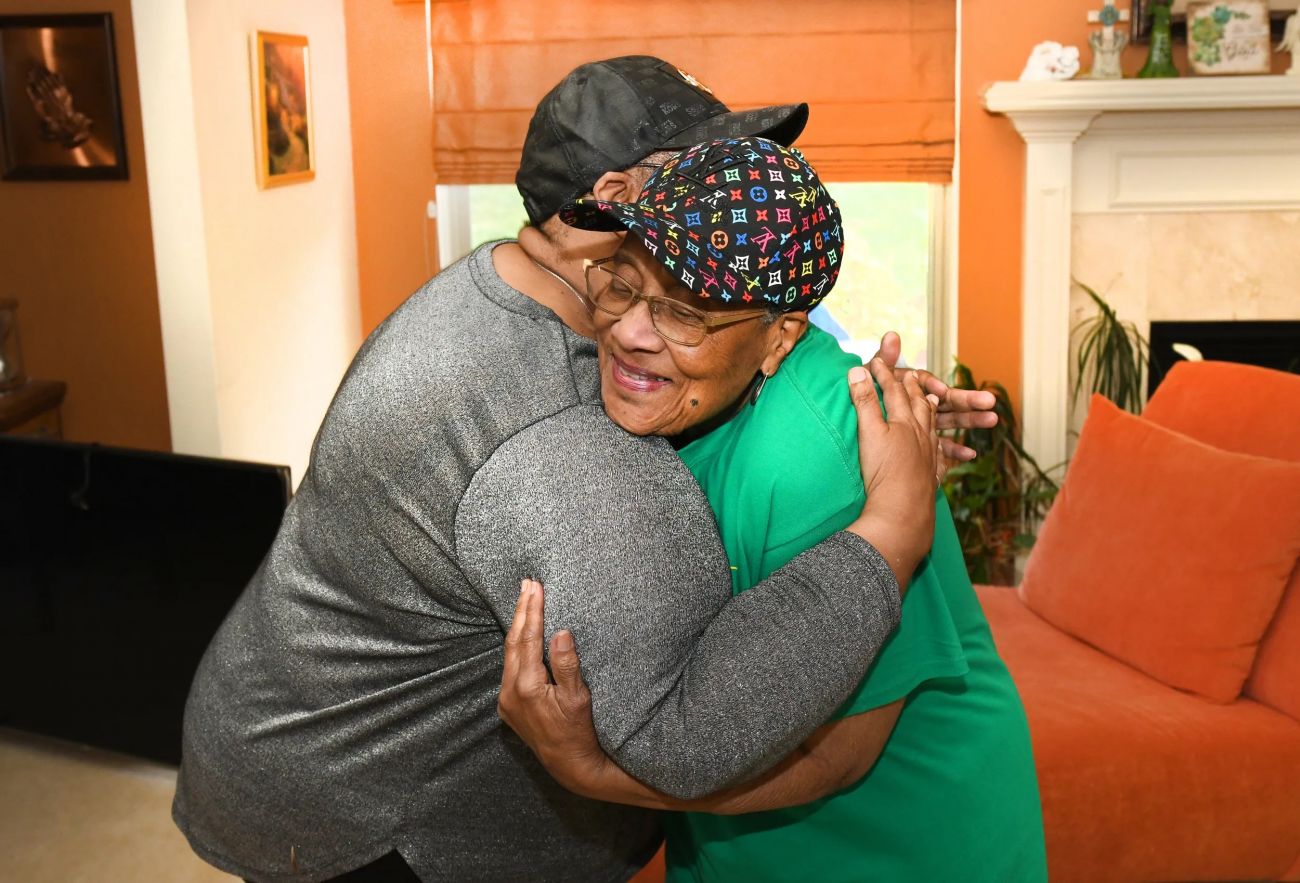
In 2008, the Kinship Caregiver Support Act allowed state health departments to make grants in support of navigator programs to reach metropolitan agencies, tribal organizations and connect them with assistance. In 2019, Michigan Sen. Debbie Stabenow and Ohio Sen. Sherrod Brown introduced the Family First Transition and Support Act, changing who could receive funding for fostering a child.
Since then, Ohio received $17 million in 2020 state allocation for a kinship and adoption navigator program and used it to implement payments of $10.20 a day to eligible kinship families. It requires caregivers to pursue licensure or lose payments after nine months. This year, Ohio is implementing the Title IV-E Guardianship Assistance Program to serve a small number of kinship families who meet specific criteria.
Next, the Ohio coalition is taking proposed scorecards to legislatures to show where caregivers need support, Turpin said. During its town hall in September, 43 states, including Michigan, were on board, she added.
Having helped Michigan's health department redesign programming of Child Protective Services and kinship care resources, Bouse is optimistic. She said Michigan is following Ohio's footsteps, and if navigators are successful during pilots next year they will expand to other counties.
"What makes it difficult is that the larger majority of our citizenship did not think this is a problem because they don't think it affects them. It doesn't become personal until it happens in your house," Bouse said. "Many foster and adoptive parents or many kinship caregivers in the state of Michigan end up doing it again. That can lead to poverty, racial disparities and create a cocktail of disasters for the child. Everybody always says the child is most important. When it's not their child, it's easy to turn their back and walk away."
Generations United in Washington, D.C., was awarded $10 million in federal funds over the next five years to continue elevating available resources in each state. Washington also added a Statewide Kinship Care Legal Aid Coordinator with two additional employees.
Pennsylvania residents have access to KinConnector, which fields calls from kinship caregivers. The team often gets calls from residents in other states as well, looking for some sort of resource to help navigate tricky federal programs.
Just acknowledging the difficulties that kinship caregivers face and connecting them directly with resources have been essential, said Adam Maasdam, a kinship navigator for the program.
"It's cheaper for taxpayers for family members to take on caregiving duties," he said. "They're doing it out of love, not for the money. But we can better support them with direct care," including potential cash payments, direct access to resources like clothing or food for the children and more.
Recently, caregivers have seen success in at least being treated equally to foster parents. In Arizona, Gov. Doug Ducey recently signed into law an increase in the stipend for kinship caregivers who are licensed to be caregivers, bumping up the stipend from $75 a month to $300. Another recent law in the state also made it easier for family members to become licensed caregivers in the first place.
Those two laws together mean that being a kinship caregiver is a little more accessible to more family members, which can in turn help reduce the trauma kids experience when separated from their parents.
"It makes a tangible difference, and it is the result of a lot of advocacy," Maasdam said.
See what new members are saying about why they donated to Bridge Michigan:
- “In order for this information to be accurate and unbiased it must be underwritten by its readers, not by special interests.” - Larry S.
- “Not many other media sources report on the topics Bridge does.” - Susan B.
- “Your journalism is outstanding and rare these days.” - Mark S.
If you want to ensure the future of nonpartisan, nonprofit Michigan journalism, please become a member today. You, too, will be asked why you donated and maybe we'll feature your quote next time!




